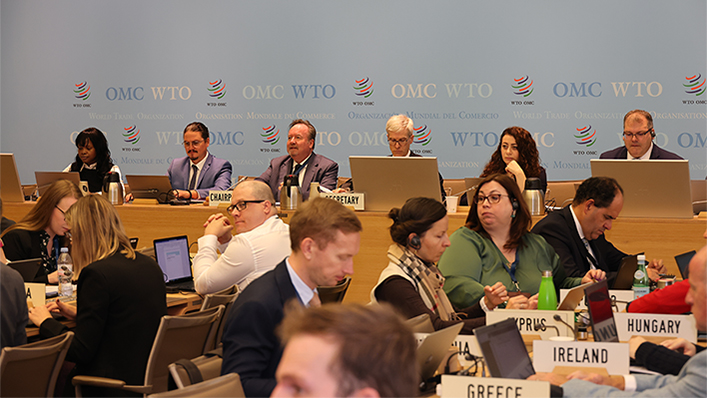
Improving SME participation in government procurement
The Committee agreed on a compilation of best practices related to measures and policies that WTO members — including non-GPA parties — can use to support the participation of SMEs in government procurement procedures. The chair of the Committee on Government Procurement, Martin Zbinden, said: “This outcome on SMEs is significant. It reflects the efforts that GPA parties have undertaken over the past ten years in the context of the Committee’s Work Programme on SMEs.”
Easier updates to GPA party-specific information contained in the GPA 2012
Parties also reached an agreement that makes it easier for parties to update information submitted to the Committee on their laws and regulations on government procurement, procurement statistics, and procurement procedures in which suppliers from GPA parties may participate.
The GPA 2012 has 22 parties (covering 49 WTO members, counting the European Union and its 27 member states as one party). While it is open to all WTO members, it is binding only for those members that have joined it. The list of current GPA parties can be found here.
An infographic explaining the Agreement can be found here.
New observer and accessions to GPA 2012
Timor-Leste — after joining the WTO on 30 August — participated in a GPA meeting for the first time since it became an observer to the Committee on 27 September. As part of its accession to the WTO, Timor-Leste committed to joining the Committee as an observer and to submitting its application for GPA membership with a coverage offer within one year after acceding to the WTO.
Timor-Leste’s WTO Ambassador Lurdes Bessa said: “This is an important step for Timor-Leste, not only as part of our WTO accession process but also as a testament to our commitment to international economic integration and the establishment of sound procurement practices. … We firmly believe that participation in the GPA can be a transformative step, providing an opportunity to strengthen governance frameworks, promote private sector development and help protect against monopolistic practices and reduced competition.”
Further progress was achieved on the accession negotiations of Albania and Costa Rica, with parties welcoming the new documents submitted by the two countries.
After an initial market access offer circulated in May, Albania submitted in July revised replies to a checklist of issues regarding its government procurement legislation. Albania stressed that it is strongly committed to acceding to GPA 2012 as soon as practicable.
Costa Rica reiterated its strong commitment to acceding to the GPA 2012. GPA parties welcomed the revised market access offer it presented in September.
The meeting also provided an opportunity to exchange information on the GPA accession negotiations of China, Kazakhstan, the Kyrgyz Republic and Tajikistan.
An infographic explaining accession to the Agreement is available here.
Background
The GPA 2012 aims to open up government procurement markets to foreign competition in a reciprocal manner and to the extent agreed between GPA parties. It also aims to make government procurement more transparent and to promote good governance.
Reciprocal market opening assists GPA parties in purchasing goods and services that offer the best value for their money. The Agreement provides legal guarantees of non-discrimination for the goods, services and suppliers of GPA parties in covered procurement activities, which are worth an estimated USD 1.7 trillion annually. Government procurement typically accounts for about 15 per cent of developed and developing economies’ GDP.
Next meeting
The next meeting of the Committee on Government Procurement is scheduled to take place at the end of November.
Share
Reach us to explore global export and import deals